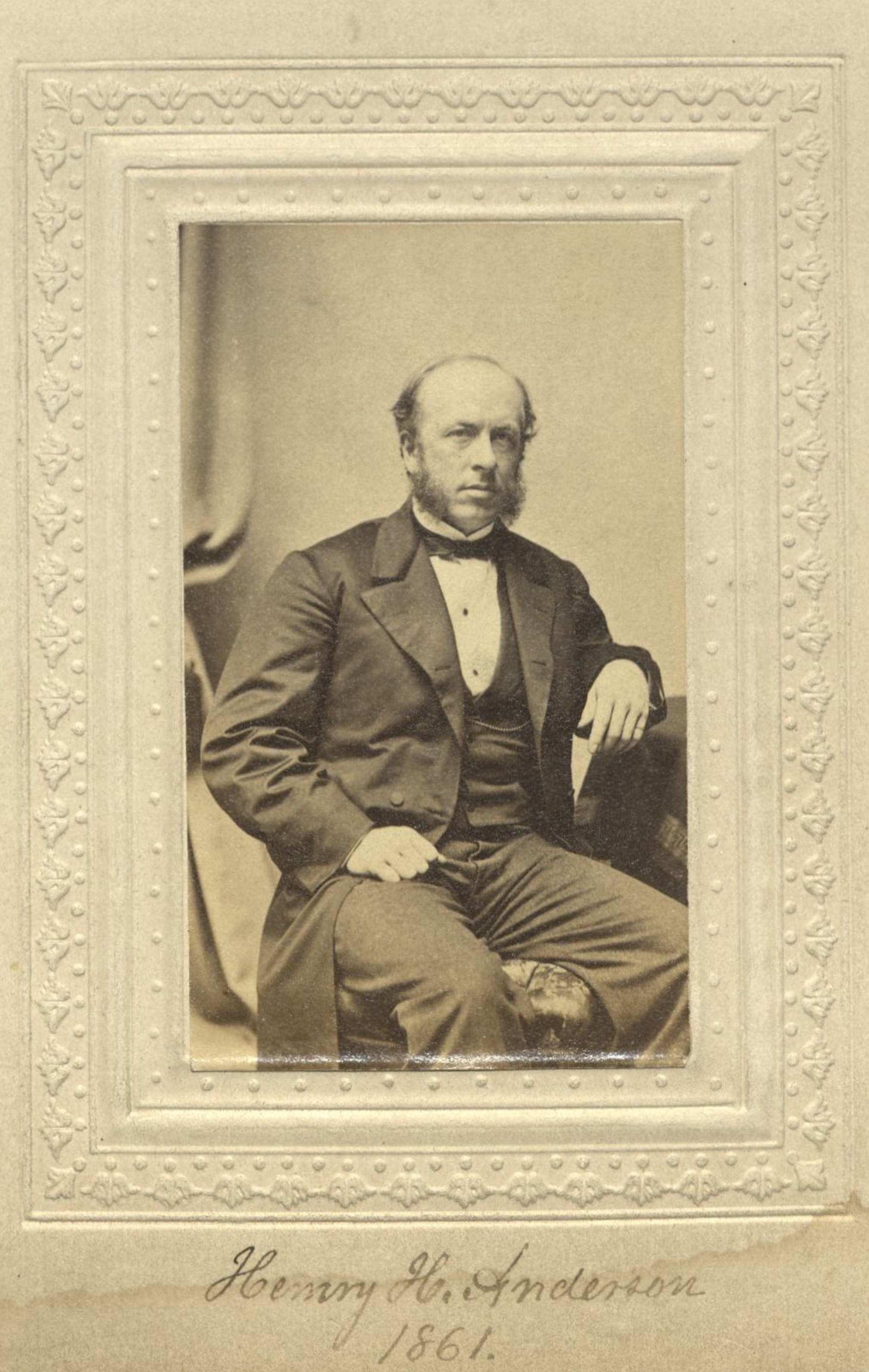Lawyer
Centurion, 1861–1896
Born 9 November 1827 in Boston, Massachusetts
Died 17 September 1896 in York Harbor, Maine
Buried Woodlawn Cemetery , Bronx, New York
, Bronx, New York
Proposed by Gilbert M. Speir and John E. Burrill
Elected 6 April 1861 at age thirty-three
Seconder of:
- Charles L. Atterbury
- William P. Chambers
- Charles Hopkins Clark
- Warren N. Goddard
- Horace M. Ruggles
- Howard A. Taylor
- Henry Walter Webb
- Edward B. Whitney
- William Williams
Supporter of:
Century Memorial
Henry H. Anderson stood in the foremost rank of the leaders of the New York Bar. His life is an illustration of the struggles that precede and the success that waits on the career of an earnest, faithful, well-trained and able lawyer. With no other equipment than a thorough education, and the inheritance of a sterling character from a line of distinguished clergymen, he won his way unaided, by the sheer force of his personal merit, to a high and assured position in his profession and in the community of which he was a member. He was an earnest student, endowed with a logical mind, an unlimited capacity for work, a tenacity of purpose that nothing could shake, and a personal integrity that commanded the respect of all who came in contact with him.
His early training as a student, and afterwards as assistant to Judge Greene C. Bronson in the office of the Counsel to the Corporation, of which he was virtually the chief, made him a master of municipal law, a forcible advocate, and fitted him preëminently for the care of the great interests subsequently committed to his charge.
Words of eulogy from one who was thrown into most intimate personal relations with him for eighteen years, unclouded by a single difference, will not be considered extravagant in attributing to him the possession of a sense of justice that made him always fair, a sagacity that was as remarkable as it was far-reaching and comprehensive, a rare quality of common sense that was more effective than brilliant oratory or showy learning in the conduct of affairs, a loyalty to principle and to friends that was as true as steel, and a kindness of heart that endeared him to all who received his bounty or were honored with his friendship.
Henry E. Howland
1897 Century Association Yearbook

